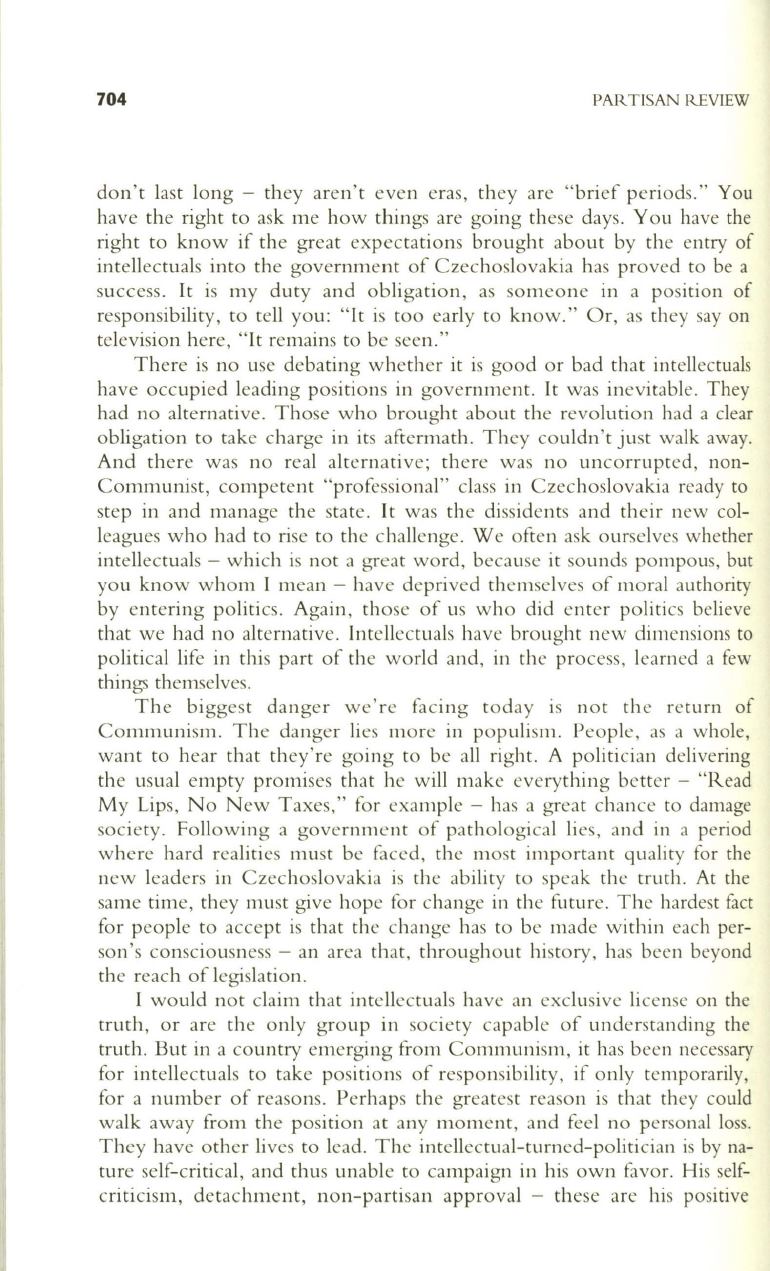
704
PAl~
TISAN REVIEW
don't last long - they aren't even eras, they are "brief periods." You
have the right to ask me how things are going these days. You have the
right to know if the great expectations brought about by the entry of
intellectuals into the government of Czechoslovakia has proved to be a
success. It is my duty and obligation, as someone in a position of
responsibility, to tell you: "It is too early to know." Or, as they say on
television here, "It remains to be seen."
There is no use debating whether it is good or bad that intellectuals
have occupied leading positions in government. It was inevitable. They
had no alternative. Those who brought about the revolution had a clear
obligation to take charge in its aftermath. They couldn't just walk away.
And there was no real alternative; there was no uncorrupted, non–
Communist, competent "professional" class in Czechoslovakia ready to
step in and manage the state.
It
was the dissidents and their new col–
leagues who had to rise to the challenge. We often ask ourselves whether
intellectuals - which is not a great word, because it sounds pompous, but
you know whom I mean - have deprived themselves of moral authority
by entering politics. Again, those of us who did enter politics believe
that we had no alternative. Intellectuals have brought new dimensions
to
political life in this part of the world and, in the process, learned a few
things themselves.
The biggest danger we're facing today is not the return of
Communism. The danger lies more in populism. People, as a whole,
want to hear that they're going to be all right. A politician delivering
the usual empty promises that he will make everything better - "Read
My Lips, No New Taxes," for example - has a great chance
to
damage
society. Following a government of pathological lies, and in a period
where hard realities must be faced, the most important quality for the
new leaders in Czechoslovakia is the ability
to
speak the truth. At the
sante time, they must give hope for change in the future. The hardest fact
for people to accept is that the change has to be made within each per–
son's consciousness - an area that, throughout history, has been beyond
the reach of legislation.
I would not claim that intellectuals have an exclusive license on the
truth, or are the only group in society capable of understanding the
truth. But in a country emerging from Communism, it has been necessary
for intellectuals to take positions of responsibility, if only temporarily,
for a number of reasons. Perhaps the greatest reason is that they could
walk away from the position at any moment, and feel no personal loss.
They have other lives to lead. The intellectual-turned-politician is by na–
ture self-critical, and thus unable to campaign in his own favor. His self–
criticism, detachment, non-partisan approval - these are his positive


